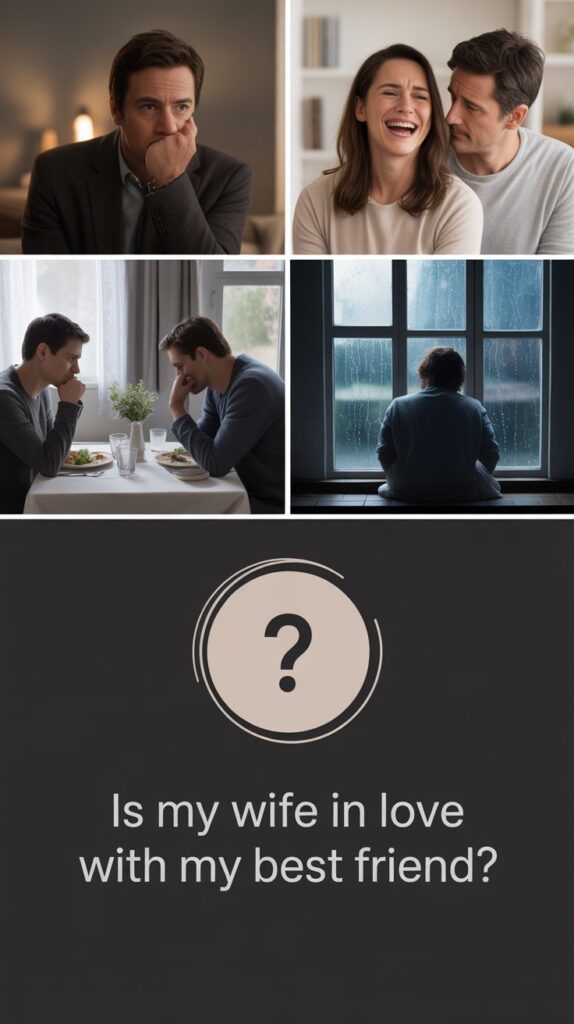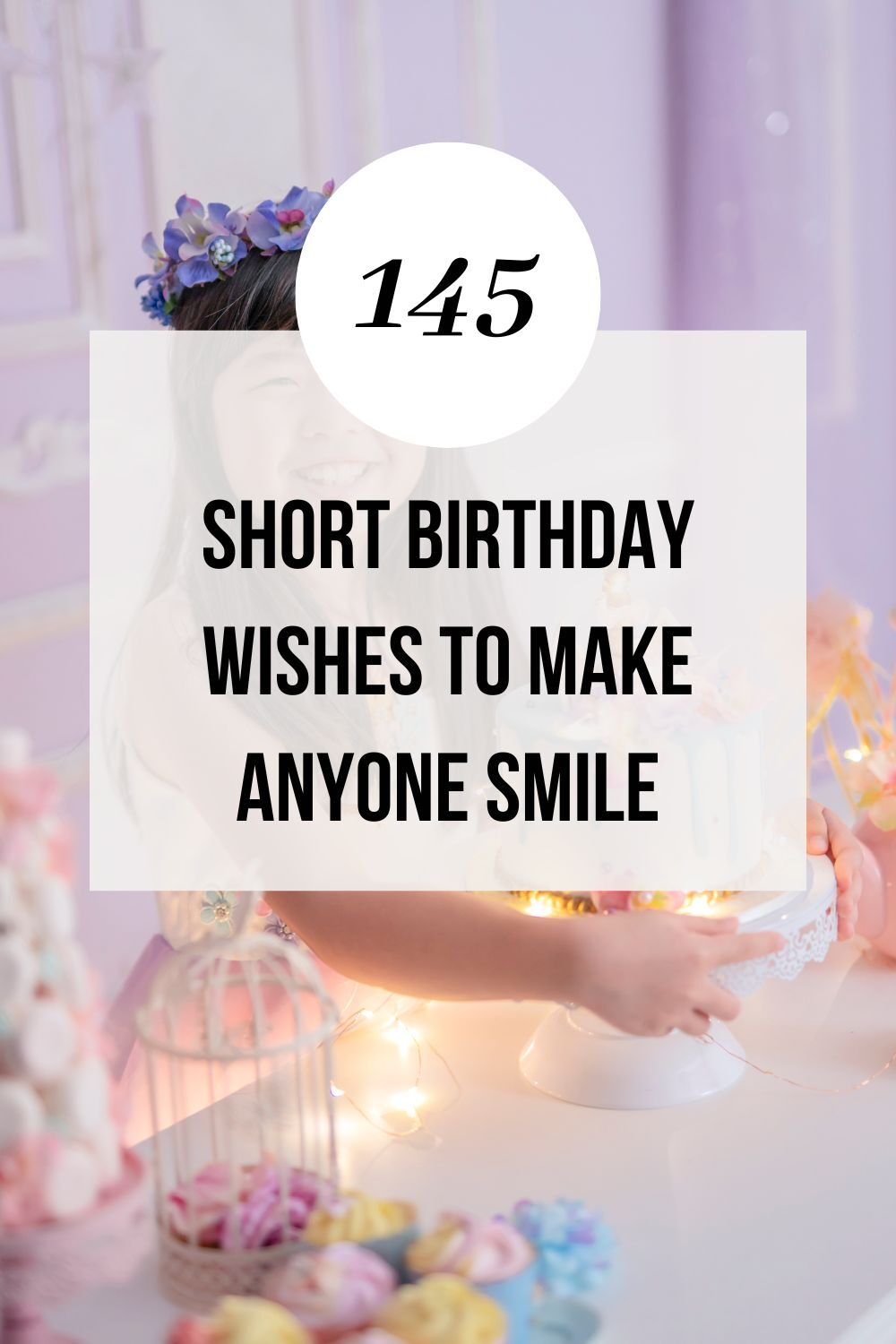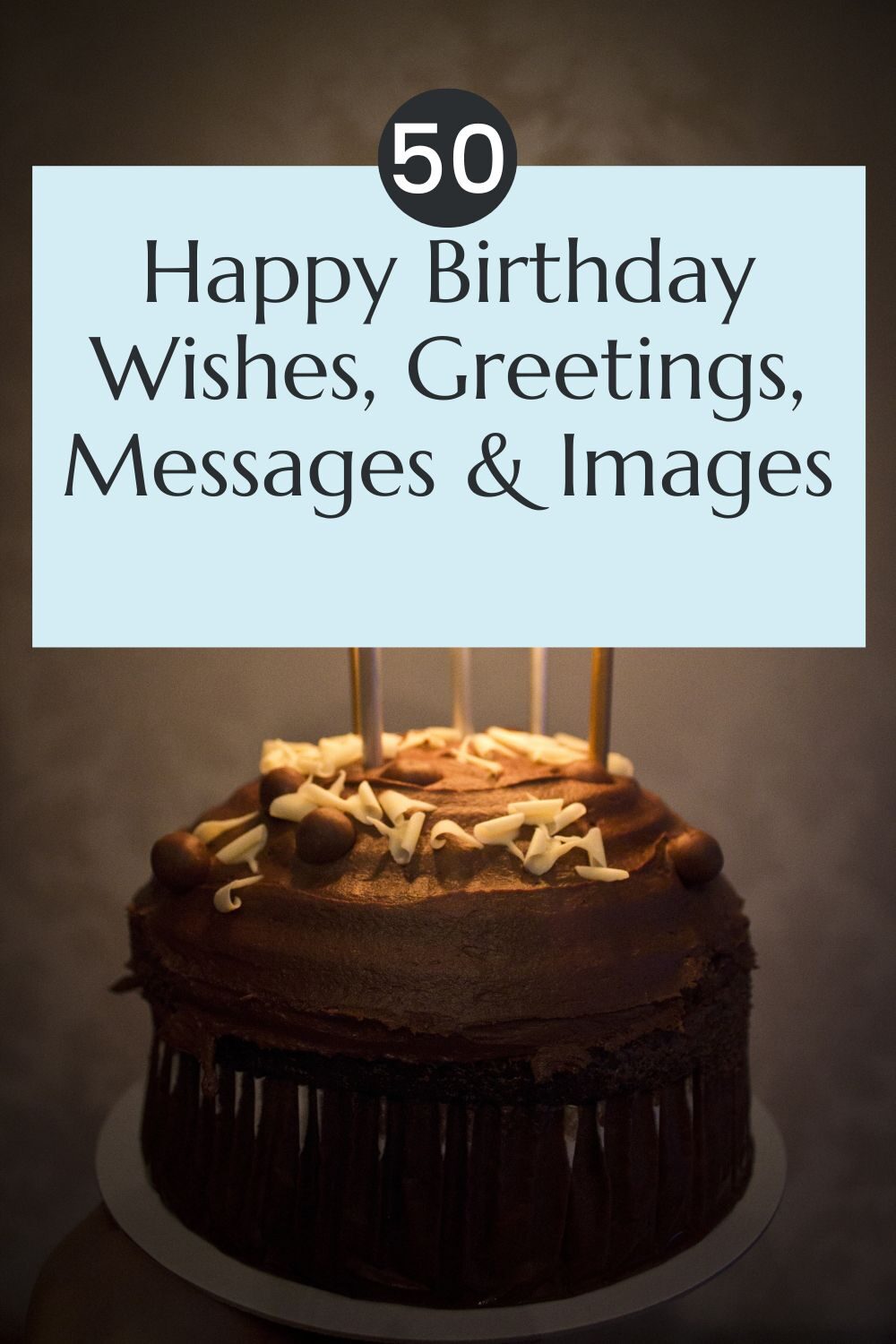You’ve been noticing some changes lately—little things that don’t quite sit right. Maybe your wife laughs just a bit too hard at your best friend’s jokes.
Maybe they text each other more than you expected.
Maybe there’s just this gut feeling you can’t shake. And now you find yourself asking: Is my wife in love with my best friend?

This is not an easy question to confront, and it can stir up feelings of betrayal, insecurity, and confusion. But acknowledging your concerns is the first step in understanding what’s really happening. Whether you’re just being cautious or you’re deeply worried, it’s important to approach the situation with clarity, not panic.
Relationships are complex. Just because two people get along doesn’t automatically mean there’s something inappropriate going on. But emotional intimacy, body language, and behavioral shifts can all reveal more than words ever will.




In this article, you’ll discover 8 specific signs that can help you recognize whether your wife’s feelings for your best friend are purely platonic—or something deeper. Each sign is broken down with clear explanations and real-life examples to help you identify patterns, spot red flags, and take action if needed.
Don’t ignore your instincts, but don’t jump to conclusions either. Let’s walk through the signs one by one so you can make informed decisions about your relationship, your friendship, and your future.
1. She Mentions Him Constantly—Even When It’s Not Relevant
What It Might Mean
When your wife frequently brings up your best friend in conversations, even when the topic doesn’t call for it, it might suggest she’s thinking about him more than usual. This isn’t just casual conversation—it’s a pattern. Whether you’re talking about work, dinner plans, or a random weekend activity, somehow, his name finds its way in.
She might bring up what he said, something funny he did, or how he would have handled a certain situation. It can feel like he’s always part of the conversation—even when he’s not physically there.
How to Spot the Pattern
Pay attention to the frequency and context. Is she bringing him up multiple times a day? Is she more animated when she talks about him than she is when discussing you or others? Does she compare your behavior to his in subtle ways?
These are all signs that her mind may be drifting in his direction emotionally, and possibly even romantically.
Why It Matters
This behavior signals emotional preoccupation. It could mean she admires him, enjoys his personality, or even wishes you were more like him. While admiration doesn’t always lead to attraction, it’s often the first step.
2. Her Body Language Changes Around Him
What It Might Mean
Body language is a powerful communicator—often more honest than words. If your wife acts differently when your best friend is around, you might be witnessing subconscious signals of attraction.
This could include leaning in when he speaks, mirroring his gestures, playing with her hair, or laughing more easily at his jokes. Her tone of voice might soften, or she may maintain more eye contact than usual.
What to Watch For
Start by comparing how she behaves with him versus others. Is her posture more open? Does she physically move closer to him without realizing it? Does she seem more excited, nervous, or overly attentive?
Also notice if she touches him more often—maybe on the arm or shoulder during conversations—or if she finds excuses to initiate physical contact.
Why It Matters
These non-verbal cues often reveal feelings people are trying to suppress or aren’t even aware of themselves. If she’s giving off physical signs of attraction, it’s a red flag that her emotions may be crossing into more intimate territory.
3. She Defends Him More Than Necessary
What It Might Mean
When a person is emotionally invested in someone, they tend to jump to that person’s defense—sometimes irrationally. If your wife gets unusually protective or defensive whenever your best friend is criticized, that’s worth noting.
Even mild, teasing comments about him might trigger a strong reaction. She might say things like, “You’re too hard on him,” or “He didn’t mean it that way,” and become visibly irritated.
How to Recognize It
It’s normal to defend friends, but it becomes suspicious when she takes his side over yours in arguments. Watch for signs that she’s minimizing his mistakes, rationalizing his actions, or turning disagreements into opportunities to praise him.
This can even show up in group settings. If you all hang out and he messes up, is she the first to smooth things over? Does she seem more loyal to him than to you in these moments?
Why It Matters
This kind of behavior points to emotional bias. If your wife is always defending your best friend—even when he’s clearly in the wrong—it might mean she’s emotionally attached and unable to view him objectively anymore.
4. She Spends More Time with Him Than She Should
What It Might Mean
Time is one of the most valuable forms of emotional currency. If your wife chooses to spend significant one-on-one time with your best friend—especially when you’re not included—it could suggest a deeper connection.
This could look like frequent meetups, long phone calls, late-night texting, or even social plans you weren’t invited to.
How to Recognize It
Does she make excuses to be around him? Does she light up when talking about future plans with him? Maybe they suddenly have “inside jokes” or talk about topics that don’t include you.
Also pay attention to secrecy. If she’s vague about how much time they’ve spent together or seems defensive when asked, that’s a red flag.
Why It Matters
When someone invests more time and emotional energy into another person than they do into their partner, it creates emotional distance in the marriage. Repeated patterns of preferential time spent together can signal emotional infidelity—even if no physical boundaries have been crossed yet.
5. She Becomes Emotionally Distant from You
What It Might Mean
One of the clearest signs of emotional diversion is when your wife starts pulling away from you. This often comes after a shift in emotional energy toward someone else—in this case, your best friend.
You may notice that conversations become shallow, physical intimacy decreases, and she’s less interested in your day-to-day life. She might seem distracted, easily irritated, or disengaged.
What to Watch For
Look for signs of disconnection. Is she less affectionate? Does she avoid meaningful eye contact? Do your attempts at emotional connection fall flat or get brushed aside?
These changes often sneak in gradually. One day you realize you’re talking to her, but she’s not really present. Her body’s there, but her mind—and maybe her heart—are somewhere else.
Why It Matters
Emotional detachment is serious. While it can be caused by many things—stress, depression, or burnout—it’s also a classic sign that someone is developing feelings elsewhere. If that emotional focus is directed at your best friend, it’s a double betrayal.
6. She Keeps Secrets or Lies About Their Communication
What It Might Mean
Trust is built on openness. When your wife starts hiding conversations with your best friend or lying about when and how often they talk, that’s a huge red flag.
Even if nothing physical has happened, secrecy creates emotional boundaries between you. It sends a message that some parts of her life are no longer yours to see.
How to Spot It
Check for small inconsistencies. Maybe she says she hasn’t seen him all week, but you later find out they went for coffee. Or she hides her phone when texting, suddenly clears her chat history, or avoids answering calls when you’re around.
Also pay attention to tone. If she acts overly casual or changes the subject when he’s mentioned, she may be trying to deflect suspicion.
Why It Matters
Deception in any form is a threat to the health of your relationship. If your wife feels the need to lie or hide interactions, it’s a sign she knows those interactions cross a boundary—whether she admits it or not.
7. She Shows Signs of Jealousy When He Dates Someone
What It Might Mean
Jealousy is often rooted in desire. If your wife reacts negatively when your best friend starts seeing someone new—especially with subtle digs, coldness, or dismissiveness—it might be because she wishes she were the one he was dating.
She may not express jealousy openly, but her body language, tone, or offhand remarks can reveal her true feelings.
What to Watch For
Does she act disinterested but clearly keep tabs on his dating life? Does she criticize his new partner, even without good reason? Maybe she asks too many questions or compares herself to the woman he’s seeing.
These are emotional slip-ups that reveal more than intended.
Why It Matters
If your wife seems invested in who your friend is dating and shows signs of resentment or discomfort, it could mean her feelings for him go deeper than friendship. This type of jealousy is a strong emotional indicator.
8. Your Gut Tells You Something Is Off
What It Might Mean
Sometimes, the most reliable signal isn’t logical—it’s instinctual. If your gut is telling you something feels wrong, don’t ignore it. Intuition is your subconscious picking up on patterns, energies, and shifts you can’t always articulate.
You know your wife. You know your best friend. And you know when something just doesn’t feel right between them.
How to Trust It
Pay attention to how you feel when they interact. Do you feel uncomfortable, excluded, or suspicious? Do you notice lingering glances or awkward silences?
Also trust how your body responds—tightness in your chest, racing thoughts, or unease around them could be pointing you toward something important.
Why It Matters
Your instincts are there for a reason. While they shouldn’t be your only source of truth, they’re a powerful guide. If your gut keeps nagging you, it’s worth exploring further—even if it’s painful.
Conclusion
Discovering that your wife might be developing feelings for your best friend is one of the hardest emotional challenges you can face. The pain isn’t just about potential infidelity—it’s about two people you deeply care for crossing lines you thought were safe.
But awareness gives you power. By recognizing these 8 signs—frequent mentions, changed body language, secretive behavior, and emotional distance—you can begin to piece together a clearer picture of what’s really going on.
Don’t rush into confrontation or accusations. Instead, take time to reflect, gather your thoughts, and, if needed, have an honest and calm conversation with your wife. Healing and clarity start with courage. Whether that leads to difficult decisions or a path toward reconnection, you deserve the truth.
You’re not alone. Trust your instincts, protect your peace, and remember—your emotional well-being matters.
FAQs
1. Can my wife have feelings for my best friend without cheating?
Yes. Emotional attraction doesn’t always lead to physical actions, but it can still be damaging to a marriage.
2. Should I confront my wife if I suspect something?
Yes, but do it calmly and respectfully. Focus on how you feel rather than making harsh accusations.
3. What if she denies everything, but I still feel uneasy?
Trust your instincts. Consider couples counseling to help uncover underlying issues.
4. Is it normal to feel jealous even if nothing has happened?
Yes. Jealousy can be a natural reaction to feeling excluded or emotionally replaced.
5. How do I rebuild trust if something inappropriate has happened?
Rebuilding trust takes time, honesty, and a willingness from both sides to heal and grow. Counseling can help guide the process.













